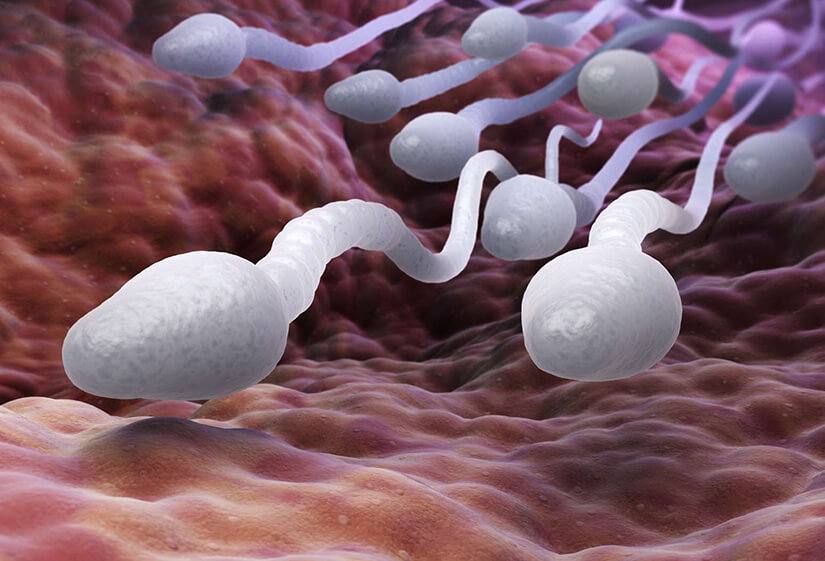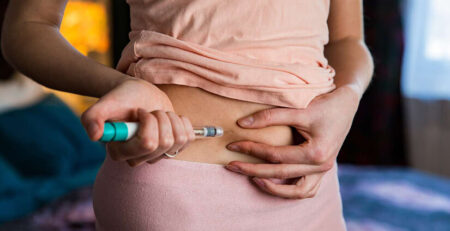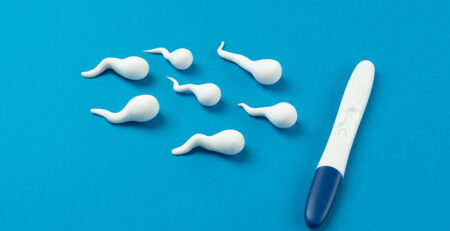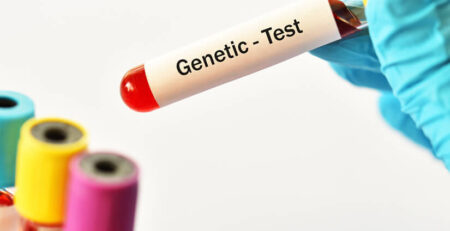How to Make Sperm Stronger for a Healthy Pregnancy?
When you’re planning for a healthy pregnancy, the focus often shifts to the health and well-being of the mother. However, one crucial factor that’s often overlooked is the quality of sperm. Whether you’re trying naturally or considering options like IVF treatment, the strength and vitality of sperm play a critical role in conception. But how do you ensure that sperm is at its peak performance?
This guide will provide expert-backed strategies to make sperm stronger for pregnancy, ensuring you’re on the right path to achieving a healthy pregnancy.
Understanding Sperm Health: Why It Matters
Sperm health is not just about quantity; it’s about quality, too. Healthy sperm is characterised by good motility, morphology, and count, which significantly increase the chances of successful fertilisation. For couples struggling with conception, addressing sperm health can make all the difference, whether you’re planning a natural pregnancy or exploring IVF treatment.
1- Optimize Your Diet for Sperm Strength
What you eat directly impacts sperm quality. Nutrient-rich foods that support sperm health include:
- Antioxidants: Foods like berries, nuts, and leafy greens are high in antioxidants like vitamins C and E, which protect sperm from oxidative stress, a leading cause of sperm damage.
- Omega-3 Fatty Acids: Found in fatty fish like salmon, walnuts, and flaxseeds, omega-3s enhance sperm motility and morphology.
- Zinc: This essential mineral, found in oysters, beans, and whole grains, plays a critical role in sperm production and testosterone levels.
- Folate: Green vegetables, legumes, and fortified grains are rich in folate, which has been shown to improve sperm quality and reduce the risk of chromosomal abnormalities.
Including these in your diet can set the foundation for a healthy pregnancy by boosting sperm strength.
2- Lifestyle Modifications: Small Changes, Big Impact
Your lifestyle choices can either enhance or hinder sperm quality. Consider the following changes:
- Regular Exercise: Moderate exercise, such as brisk walking or swimming, improves circulation, including to the reproductive organs, which can boost sperm production. However, avoid excessive cycling or high-intensity workouts, which may have the opposite effect.
- Maintain a Healthy Weight: Obesity is linked to lower sperm quality. Achieving and maintaining a healthy weight can improve sperm count and motility.
- Limit Alcohol and Quit Smoking: Both alcohol and smoking have been shown to reduce sperm count and increase the risk of sperm abnormalities. Limiting alcohol intake and quitting smoking are crucial steps in preparing for a healthy pregnancy.
- Reduce Stress: Chronic stress can negatively affect sperm production and quality. Mindfulness practices, yoga, and adequate sleep can help manage stress levels, thereby improving sperm health.

3- Environmental Factors: Protect Your Sperm
The environment you’re exposed to daily can have a significant impact on sperm quality. Here’s how to protect your sperm from harmful environmental factors:
- Avoid Exposure to Toxins: Pesticides, heavy metals, and certain chemicals found in plastic can harm sperm quality. Use organic produce, avoid plastic containers, and reduce exposure to industrial chemicals.
- Temperature Control: High temperatures can damage sperm. Avoid hot tubs, saunas, and tight underwear, which can elevate the temperature around the testicles and impair sperm production.
- Radiation and Mobile Phones: Limit exposure to radiation, including the use of laptops on laps or prolonged mobile phone use in pockets. Some studies suggest that these devices can affect sperm quality.
4- Medical Interventions: When Natural Efforts Need a Boost
If lifestyle and dietary changes aren’t yielding the desired results, medical interventions might be necessary. Consulting with the best gynaecologist in Delhi can provide you with personalised advice and treatment options:
- Supplements: If your diet isn’t providing enough of the necessary nutrients, supplements like CoQ10, folic acid, and zinc can improve sperm quality.
- Hormonal Therapy: For some men, hormonal imbalances can be the cause of poor sperm health. Hormonal therapy prescribed by a specialist can correct these imbalances and improve sperm production.
- Sperm Retrieval Techniques: For severe cases, techniques like Testicular Sperm Extraction (TESE) may be recommended, especially if you’re considering IVF treatment.
5- The Role of IVF in Overcoming Sperm Issues
For couples facing significant sperm-related challenges, IVF treatment offers a promising solution. During IVF, even sperm with low motility or count can be used to fertilise an egg. Intracytoplasmic sperm injection (ICSI) is a technique used in IVF where a single sperm is injected directly into the egg, increasing the chances of fertilisation.
This advanced technology is particularly beneficial for men with low sperm count or motility, providing hope for a healthy pregnancy where natural conception may be difficult.

6- When should I consult an IVF Specialist or gynaecologist to improve sperm quality?
If you’ve been trying to conceive for over a year without success, it might be time to consult a specialist. The best gynaecologist in Delhi can offer comprehensive fertility evaluations, including semen analysis, to determine the quality of your sperm. Based on the findings, they can recommend the most appropriate course of action, which may include lifestyle changes, medications, or advanced treatments like IVF.
This comprehensive guide aims to equip you with the knowledge and tools to enhance sperm health, bringing you closer to a healthy pregnancy. Remember, your journey towards parenthood is unique, and with the right support and information, you can navigate it successfully.
Taking the Next Step Towards a Healthy Pregnancy
Achieving a healthy pregnancy is a shared responsibility, and sperm health is a crucial part of the equation. By optimising your diet, making lifestyle changes, and protecting your sperm from environmental harm, you can significantly improve your chances of successful conception. If natural methods aren’t enough, advanced medical treatments, including IVF treatment, are available to support your journey.
If you’re concerned about sperm health or facing challenges with conception, consulting with an expert like Dr Rhythm Gupta, one of the best gynaecologists in Delhi, can provide you with tailored advice and treatment options. With advanced fertility treatments like IVF, you can overcome many obstacles to achieve a healthy pregnancy. Book your consultation today and take the first step towards realising your dream of parenthood.
FAQs About How to Improve Sperm Quality for Healthy Pregnancy
Yes, certain medications can negatively impact sperm quality. Drugs like anabolic steroids, some antibiotics, and medications for high blood pressure or depression can reduce sperm count and motility or alter sperm morphology. If you’re trying to conceive, it’s important to discuss all your medications with a healthcare provider who may suggest alternatives or adjustments to minimise their impact on fertility.
While men can produce sperm throughout their lives, sperm quality tends to decline with age. After the age of 40, men may experience a decrease in sperm motility and an increase in DNA fragmentation, which can make conception more difficult and increase the risk of genetic abnormalities. This is why it’s beneficial for men to consider their reproductive health earlier rather than later when planning a family.
Absolutely. Sperm quality is often a reflection of a man’s overall health. Conditions like obesity, diabetes, and chronic illnesses can negatively impact sperm production and function. Maintaining a healthy lifestyle with a balanced diet, regular exercise, and stress management not only supports sperm health but also promotes general well-being.
Frequent ejaculation can help improve sperm quality by reducing the number of old, potentially damaged sperm in the reproductive tract. However, there needs to be a balance; too frequent ejaculation might reduce sperm count in each ejaculation, while too infrequent can lead to higher levels of DNA fragmentation. Ideally, every 1-2 days is considered optimal when trying for a healthy pregnancy.
Antioxidants play a critical role in protecting sperm from oxidative stress, which can damage DNA and reduce sperm quality. Consuming foods high in antioxidants, such as fruits and vegetables, or taking antioxidant supplements can help shield sperm from environmental toxins and improve overall fertility. Antioxidants like vitamin C, vitamin E, and selenium are particularly beneficial for maintaining healthy sperm to achieve a healthy pregnancy.












